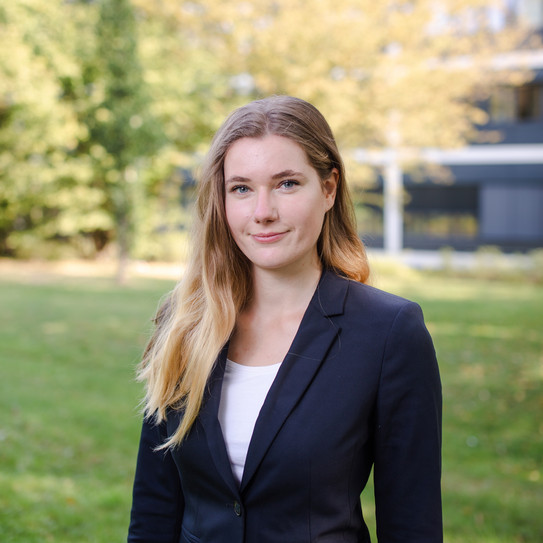Alina Timmermann, M.Sc.
Phone and E-Mail
Tel.: (+49) 231 755 - 5427
E-Mail: alina.timmermann (at) cs.tu-dortmund.de
Office
Room 207
Otto-Hahn-Str. 16
Postal Address
Lehrstuhl Informatik 4
TU Dortmund
Otto-Hahn-Straße 16
44227 Dortmund
Deutschland

- Research Fellowship in Research Training Group 2193 "Adaptive Intelligence of Factories in Complex and Dynamic Environments".
- Sales forecasting for large industrial data sets (cooperation with Joyson Safety Systems)
- Clustering of time series, Ensemble learning for Forecasting
- Credible sales forecasting, trustworthy calculation of KIPs for forecast accuracy
- A. Timmermann, M. Abdulgader, L. Hagen, M. P. Milz, A. Wirtz, D. Biermann, W. Tillmann, F. Walther (2021), "Characterisation of arc-sprayed corrosion protection coatings post-treated by means of “machine hammer peening”", Thermal Spray Bulletin, Issue 01 (2021) Volume 14
- J. Baumann, A. Timmermann, D. Biermann (2021), "Generation of Predetermined Surface Structures by Simulation Based Process and Tool Design When Milling Free-Formed Surfaces", Sheet Bulk Metal Forming - TCRC73 2020. Lecture Notes in Production Engineering, Springer, DOI
- A. Timmermann, M. Abdulgader, L. Hagen, A. Koch, P. Wittke, D. Biermann, W. Tillmann, F. Walther (2020), "Effect of machine hammer peening on the surface integrity of a ZnAl-based corrosion protective coating", MATEC Web of Conferences 318 (4):01008, DOI
- D. Biermann, M. Tilger, A. Timmermann (2019), "Echtzeit-Aufnahme der Oberflächenrauheit im Rahmen einer zweistufigen Microfinishbearbeitung", Diamond Business, 70 (3), ISSN 1619-5558
- since 04/2022
Research Assistant and Doctoral Candidate, Research Training Group 2193, Chair IV: Modeling and Simulation, Faculty of Computer Science, TU Dortmund University - 01/2022 - 03/2022
Research Assistant, Chair IV: Modelling and Simulation, Faculty of Computer Science, TU Dortmund University - 01/2021 - 12/2021
Research Assistant, Chair VIII: Artificial Intelligence, Faculty of Computer Science, TU Dortmund University - 01/2020 - 12/2020
Research assistant and doctoral candidate, Institute of Machining Technology (ISF), Faculty of Mechanical Engineering, TU Dortmund University - 05/2016-09/2019
Master of Science, Industrial Engineering, TU Dortmund University - 2015
Technical internship at Captrain GmbH, Hecker Glastechnik GmbH, Microsonic GmbH (12 weeks) - 2013
Basic internship at Dr. Diestel GmbH (8 weeks) - 10/2012-04/2016
Bachelor of Science, Industrial Engineering, TU Dortmund University
- 2020
CES Sponsorship Award of the Association of German Engineers (VDI) for Master's Thesis - 2016 - 2019
Scholarship at Female Talents in Accounting and Finance program
- 2021-2022
Council member in the student dormitory Studentendorf: Organization of events for students - 2018
Schülerpaten e.V. Volunteer tutoring for students with a migration or refugee background - 2015
Mentoring Program for Erasmus Students at TU Dortmund University
Offered thesis topics (July 11th 2025)
Thesis topics about further development of a Python-based forecasting tool developed at the chair
- Redesign of the tool's GUI based on UX and UI principles
- Implementation of machine learning methods to evaluate the forecasts#
- ...
If you are interested in one of the topics, please contact alina.timmermann@tu-dortmund.de.
What is expected?
- Independent work
- High level of self-motivation, willingness and curiosity to familiarise yourself with a topic
- Basic programming knowledge
What is offered?
- Extensive support from the supervisor, in the form of 2 meetings per month and assistance with questions/problems
- Encouragement of the student's own ideas, creativity and skills





